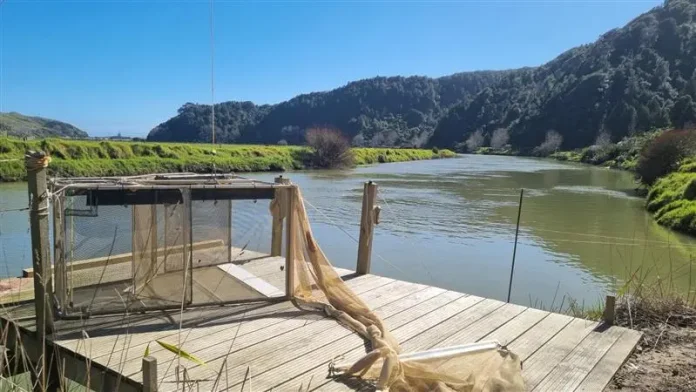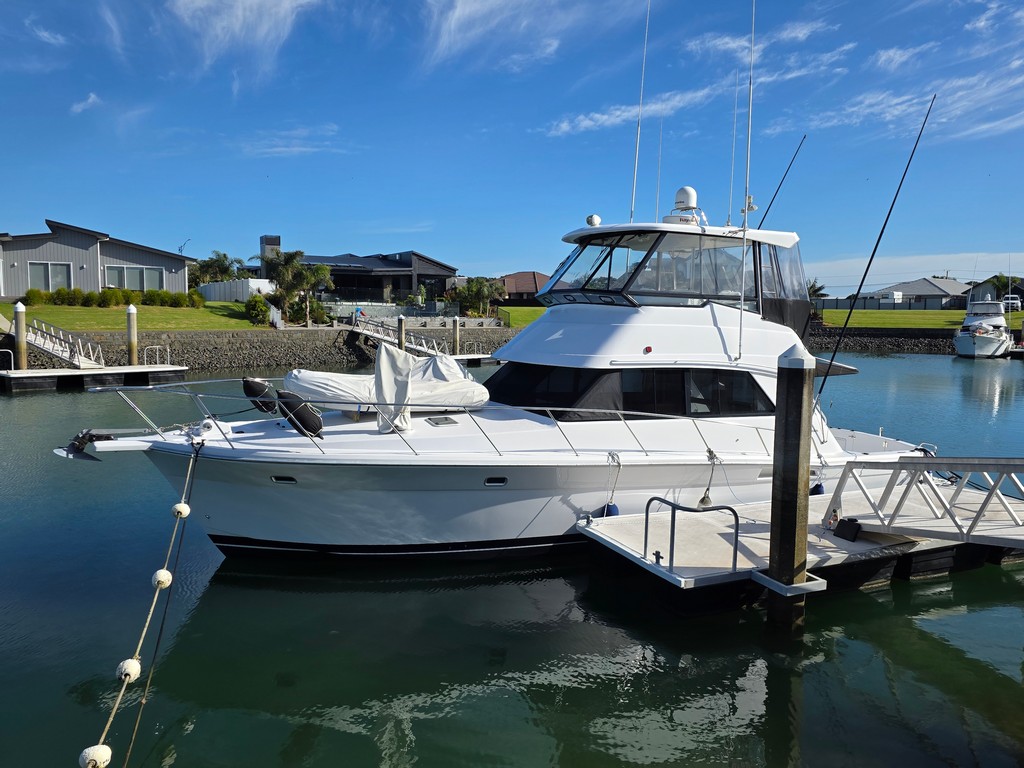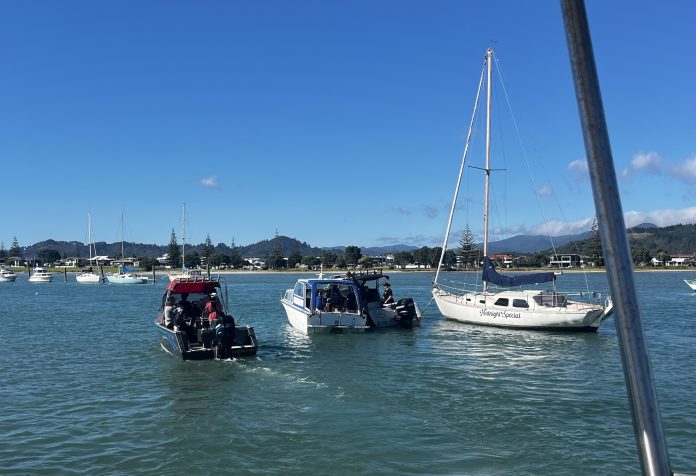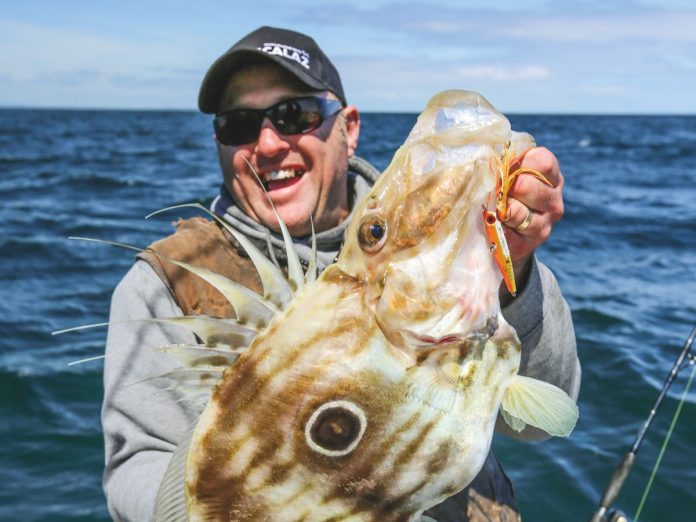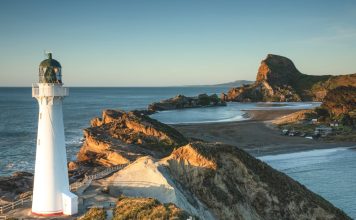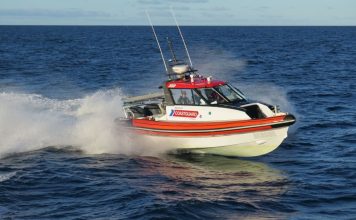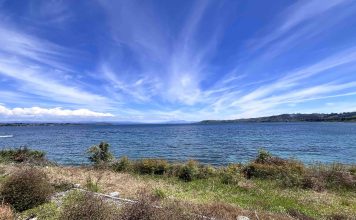This article was originally published on RNZ.co.nz
Whitebaiters have begun their annual pilgrimage to the nation’s tidal rivers and streams this week as the two-month-long season for the elusive “white gold” starts.
For many in Taranaki and Waikato, that meant a trek to the Mōkau and Awakino awa where whitebait stands change hands for tens of thousands of dollars.
Listen to the RNZ’s Morning Report: Whitebait season: Annual hunt for ‘white gold’ underway
Spaced no less than 30 metres apart, almost 850 whitebait stands line the banks of the Mōkau and Awakino rivers.
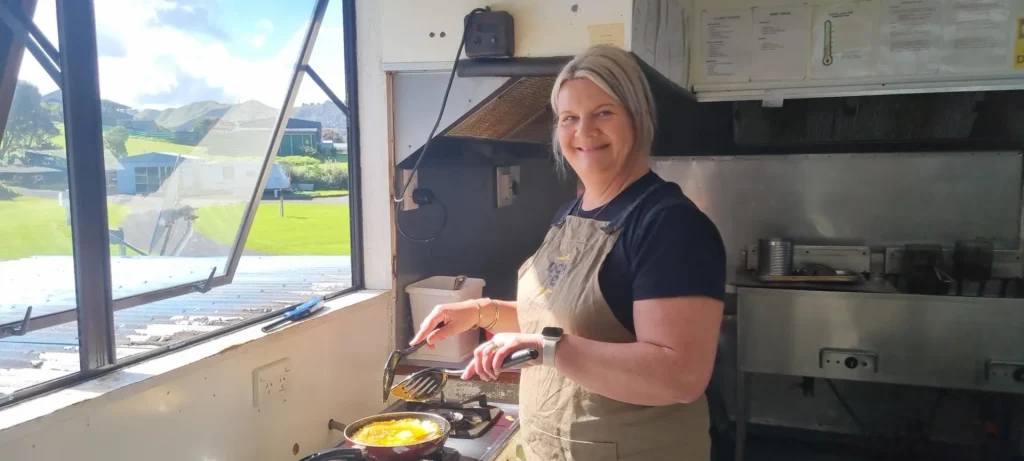
Photo credit: RNZ / Robin Martin
Small jetties with set-nets attached and adjoining huts nestle in amongst the flax as far as the eye can see.
Retired Stratford farmers Karen and Kevin Walsh bought a stand neighbouring her mum’s 32 years ago.
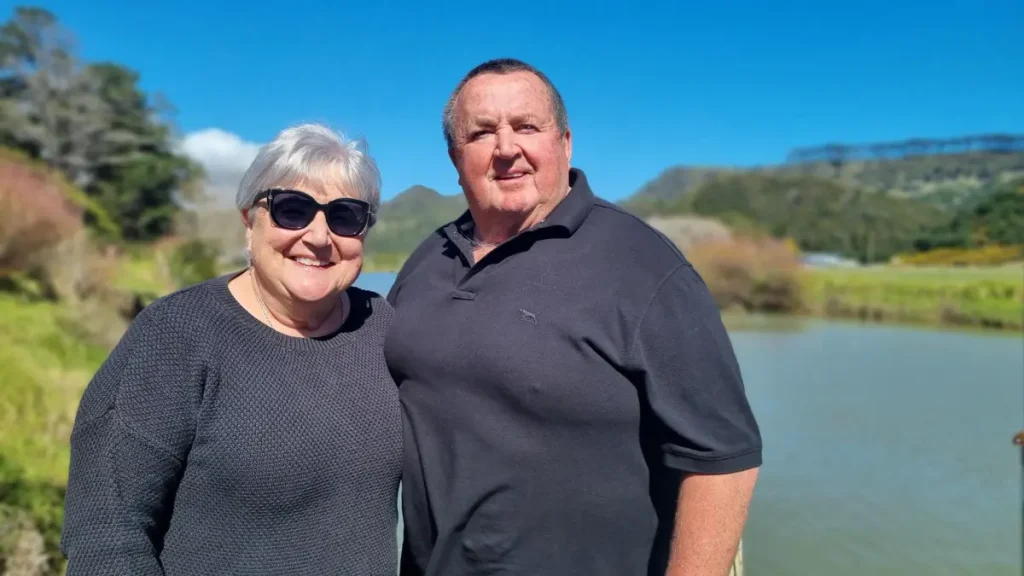
Photo credit: RNZ / Robin Martin
“[The previous owner] was getting elderly and my mother used to take him sultana cake all the time and one day he said, ‘oh, would you like to buy my stand?’.
“And mum said, ‘oh, I know somebody who’d love to buy your stand’, so we bought it, Kevin and I bought it and we’ve been here ever since.”
Kevin said the couple, who now lived in New Plymouth, got it for a steal compared to today’s prices.
“We bought this one for $600, but now they’re mega-bucks. They’ve got to be well in the thousands.”
For Karen, the attraction to whitebaiting was simple.
“The people. We love the community. We love coming up for a couple of months of the year and being a part of Mōkau and Awakino.”
Kevin reckoned the social life was not too bad either.
“Happy hour. Most nights from about 4.30pm to 5.30pm. The Awakino pub and we go there every Friday night and catch up with the locals.”
The couple were fans of the delicacy, but it was in short supply when RNZ visited.
“We are looking forward to our first fritter. We were hoping to have it for tea tonight, but it doesn’t look good at the moment.”
Karen kept it simple when she had whitebait in the pantry.
“Just mix them up with a bit of egg and a bit of salt and just whitebait, but it’s got to be on white bread, definitely white bread.”
John Coleman was parked up with his camper not far away.
A retired farmer who now lived in Bell Block on the outskirts of New Plymouth, he had been whitebaiting on the river for a couple of decades.
“It’s the outdoors, it’s the beautiful days like today. It’s no use being stuck inside, you’ve got to be out in the open on a beautiful day.
“They say Mōkau is the whitebait capital of the world, but I reckon Awakino is the whitebait capital of the world.
“We’ve got a service station and a shop right handy here. We’ve got a pub just down the road. We’ve got everything we need here.
“It’s a marvellous spot and when the whitebait are running, we really catch them.”
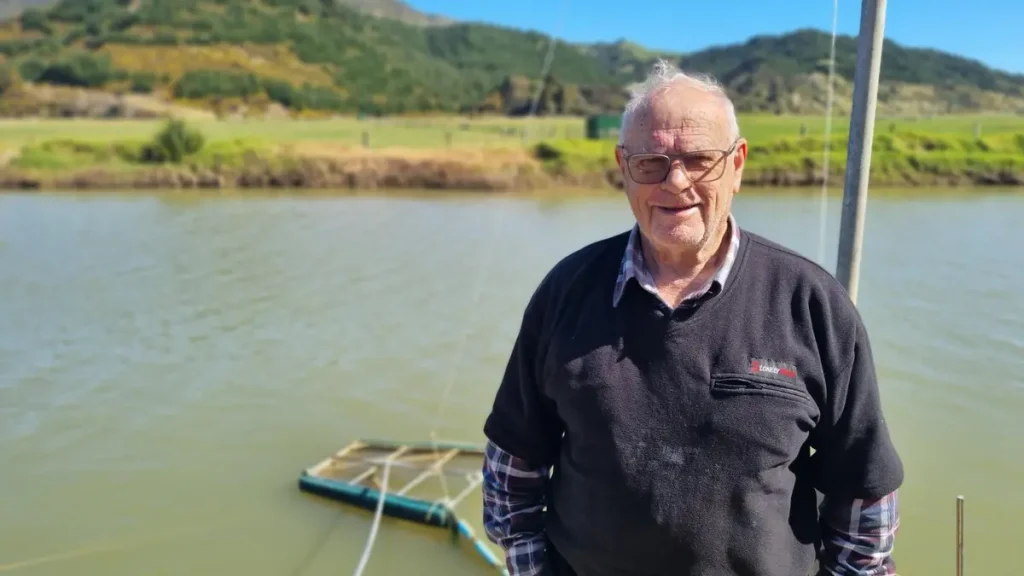
Photo credit: RNZ / Robin Martin
Ray Clough is from Matamata.
He reckoned you did not need much to get started.
“The equipment? Well, you need that net and the screen and you need some rope and you need a pole.
“You need a hut to put it all in and lock it up and patience.”
The 85-year-old, who said he caught upwards of 20 kilograms of whitebait a season, was thinking of selling his stand. It would not come cheap.
“On this river here, along the road, maybe $20,000 and then further around that point where you leave the road and you’re walking to your site maybe $15,000 or $16,000.”
Waitara’s Bronwyn Brown got to the stand she was using via a track beside State Highway 3.
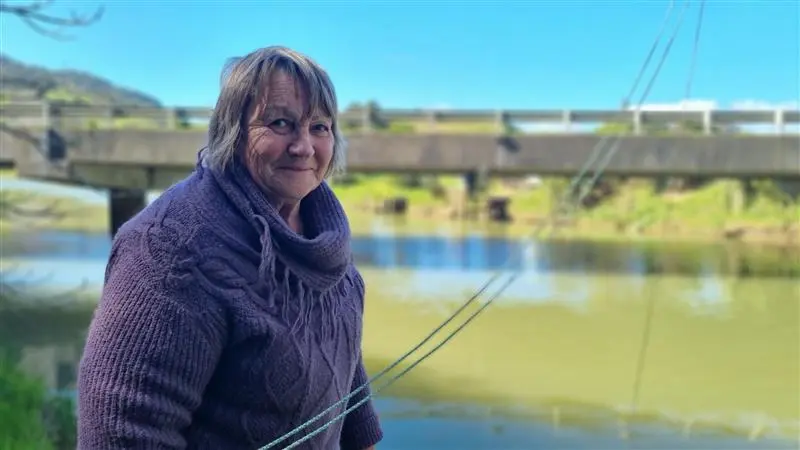
Photo credit: RNZ / Robin Martin
Brown, who was staying at the Seaview Motor Camp for the season, reckoned whitebait were the perfect treat.
“They’ve got a flavour of their own and you can only get them for two months of the year, so they’re sort of quite precious.
“You put them in the freezer and when someone visits you’ve got something different that they might not have had for a long time.”
She kept their preparation simple also.
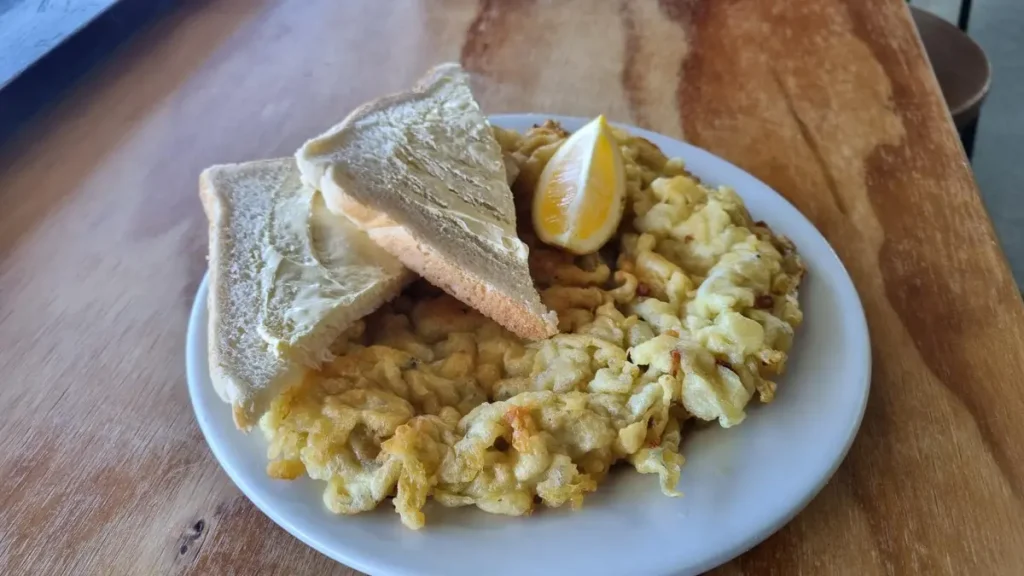
Photo credit: RNZ / Robin Martin
“I cook them in egg, I don’t use flour or anything. Just whitebait and egg with salt and pepper.”
Whitebait Inn owner Jodie Death served about 30-40 whitebait fritters a day at her Mōkau business.
She prepared most of them in her secret batter.
“So, we make up our batter in the morning and add all our whitebait to it because they are popular and we make a lot of them during the day.
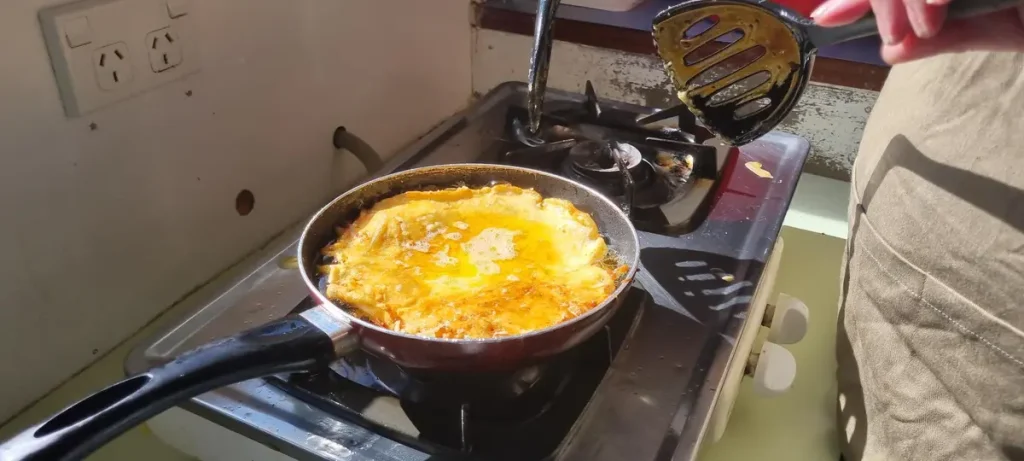
Photo credit: RNZ / Robin Martin
“So, also long as we’ve got a hot pan and a bit of butter in that pan to make it all sizzle we just add our batter mixture to it and it normally takes two to three minutes to cook a fritter.”
Death said her customers came from around the world.
“Travellers, a lot of people from out of town, because all the locals catch their own, and a lot from China.
“I guess because they have their Chinese whitebait over there, so they come to have a look and see what our whitebait is all about.”
Death, who admitted a personal preference for whitebait cooked in egg, said whether prepared in batter or egg, the allure of whitebait was the texture.
The whitebait season ends on 30 October.








